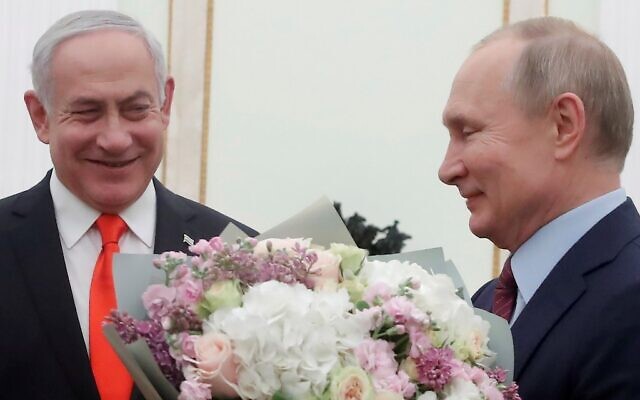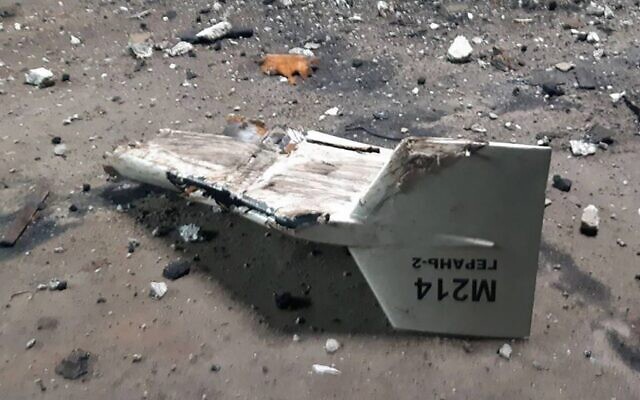Ukrainian President Volodymyr Zelensky on Wednesday called on Israel to stop “balancing” its relationship between Ukraine and Russia, as he issued a fresh call for Jerusalem to provide Kyiv with military aid.
In a remote interview at a New York Times conference, Zelensky indicated that Prime Minister-designate Benjamin Netanyahu will need to choose whether to maintain good relations with Kyiv or Moscow.
“If he just wants to maintain his personal relations with President Putin, then of course he may continue to do what he has been doing,” Zelensky said. “But if he wants to maintain the historical relationship between Israel and the Ukrainian people, then I think you need to do whatever you can in order to save as many people as possible.”
Netanyahu has boasted of having close ties with Putin and featured the Russian leader in campaign materials during previous elections. However, he has recently sounded more critical after initially accusing the outgoing government of hurting ties with Russia, saying last month he hoped Putin was “having second thoughts” since invading Ukraine.
Zelensky said Ukraine was continuing to wait for substantial defense assistance from the Jewish state and cited Russia’s alleged use of Iranian attack drones to target Ukrainian infrastructure.
Get The Times of Israel's Daily Edition by email and never miss our top stories
“Of course we are waiting for support from Israel for our country,” the Ukrainian leader said. “[Netanyahu] knows this very well, he knows every detail and he certainly can help us with air defense systems.”
Zelensky also noted he spoke by phone with Netanyahu after the latter’s right-religious bloc won a majority of Knesset seats in the November 1 election. Following the call, Zelensky said Netanyahu had agreed to look at supplying Ukraine with air defense systems.

Russian President Vladimir Putin (right) with a bouquet of flowers and then-prime minister Benjamin Netanyahu at the Kremlin in Moscow on January 30, 2020. (Maxim Shemetov/Pool/AFP)
It remains unclear if Netanyahu will change course on the war when he takes office again, as expected. The Kremlin struck a hopeful tone earlier this month about the future of Russia-Israel ties under Netanyahu.
Though a scathing critic of the previous coalition, Netanyahu praised its “prudent” approach toward Ukraine during an interview last month, highlighting Israel’s absorption of refugees and other humanitarian initiatives while refraining from supplying weapons.
Israel’s refusal to send arms is seen as an attempt by Jerusalem to maintain working ties with Moscow, due to Russia’s control of Syrian air space, where Israel’s air force has carried out hundreds of sorties against alleged Iranian arms shipments and in order to keep groups backed by Tehran from establishing a foothold.
Kyiv’s requests for air defense systems — and its public criticism of Israel’s refusal to provide them — have recently grown more strident, as Iranian-made drones play an increasingly central role in Russian aerial attacks.

This undated photograph released by the Ukrainian military’s Strategic Communications Directorate shows the wreckage of what Kyiv has described as an Iranian Shahed drone downed near Kupiansk, Ukraine. (Ukrainian military’s Strategic Communications Directorate via AP, File)
According to Channel 13 news, Israel tried to play down the delegation’s visit to avoid sparking tensions with Russia.


